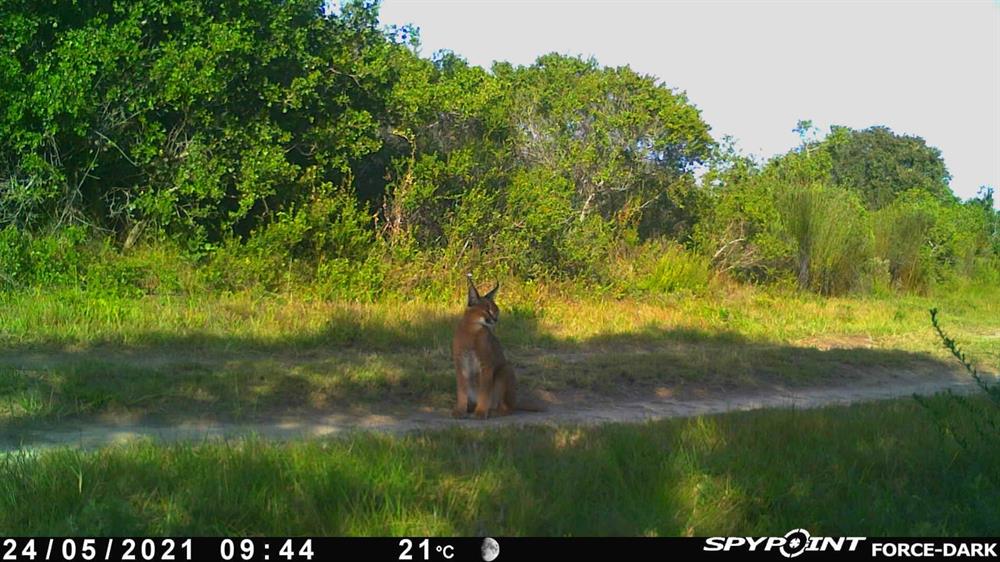GEORGE NEWS - Alice Bernard, a French PhD student from the Nelson Mandela University George Campus, has been traversing the George and Wilderness valleys in the last few months as part of research she is doing for her PhD project.
It entails the installing and servicing of dozens of camera traps that are capturing mammal species in our area, and she needs help from local residents to collect information about the movement of the animals.
"My project aims at understanding mammal species' persistence in human-dominated areas. Species are often hard to see in these landscapes and for this reason, your own knowledge and observations are very important and can help with my research," says Bernard.
She has prepared a questionnaire to find out about the presence of different mammal species on private properties (which species are present, and when) in relation to the different habitats (crops, forest, fynbos), as well as infrastructures (fences, water source) and domestic animals (livestock, dogs) that might be present on your property.
She says with its mosaic of land uses, the Garden Route Biosphere Reserve (GRBR) is the perfect place for such a study. "It is situated in the Cape Floristic Region, a global biodiversity hotspot because of its high floristic diversity and endemism as well as high faunal diversity, including the mammal fauna. Since June 2017, Unesco recognised the GRBR as the 9th biosphere reserve in the country."
Bernard says wild mammal species in this area are threatened by population growth and increasing urbanisation. "In order to protect them efficiently, it is crucial to understand how they can persist in human-dominated landscapes. They are often hard to see in these landscapes and for this reason, the public's own knowledge and observations are very important."
The outcomes of the study will be shared with all the participants as well as institutions involved in conservation and land-use regulation. The questionnaire takes about 30 minutes to complete.
"Even if you don’t find a lot of species, please also take the time to answer as gathering information of where they don’t occur is as important.
The survey is available in English and in Afrikaans. Your participation is anonymous and strictly voluntary. If you want to participate, you can use the following this link.
The questionnaire takes about 30 minutes to complete, or a bit longer if you see a lot of species on your property. Even if you don't find a lot of species, please also take the time to answer, as gathering information of where they don't occur is just as important," says Bernard.
 A caracal photographed recently.
A caracal photographed recently.
"Your contributions will be very useful for my research project and the outcomes of the study will be shared with all the participants, as well as institutions involved in conservation and land-use regulation."
The survey is available in English and Afrikaans. Participation is anonymous and strictly voluntary.
Those who want to participate in the survey can use this link.
 Bushbuck sometimes come near human dwellings in areas close to a forest.
Bushbuck sometimes come near human dwellings in areas close to a forest.
'We bring you the latest George, Garden Route news'
















